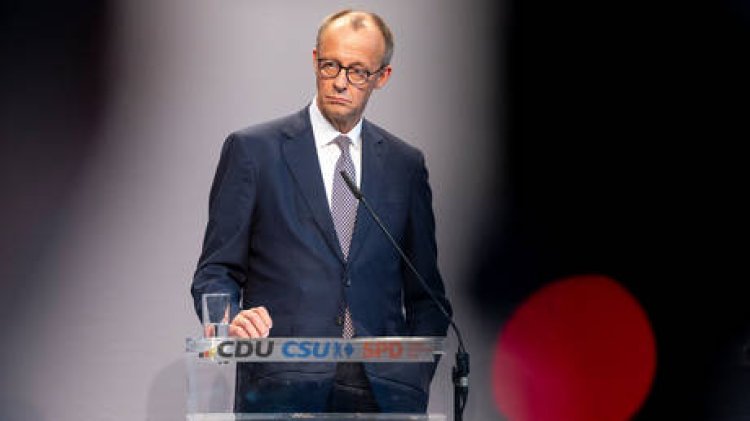Incoming chancellor cautions Germans about declining income
Friedrich Merz has acknowledged that rising social security contributions may impact net salaries for many citizens. Germany's incoming chancellor, Friedrich Merz, recognized that during his government's term, many individuals might experience...

Germany's incoming chancellor, Friedrich Merz, recognized that during his government's term, many individuals might experience a decline in their net wages due to increased social security costs and uncertain tax relief.
In a Sunday interview with the tabloid Bild, Merz responded to concerns regarding the rising expenses in Germany's pension, health, and long-term care systems, which are outpacing reforms and affecting household incomes.
“Unfortunately, that’s exactly the trend,” Merz remarked. “We’ve failed to implement the necessary reforms over the past 30 years.”
When asked if citizens could end up with lower disposable incomes, he stated, “From today's perspective, these fears are certainly not unfounded. But it will be our task to dispel these fears and do the right thing so that at the end of this electoral term, people say: We are better off than at the beginning.”
Merz noted that the coalition agreement between his Christian Democrats and the Social Democrats includes a commitment to maintaining the pension guarantee, which ensures that pensions do not fall below a specific threshold, until 2031.
However, he indicated that the coalition intends to pursue health and long-term care reforms in the coming years, which may lead to increased household costs.
Merz also confirmed that the CDU/CSU and SPD have not yet reached an agreement on an income tax relief package for workers, although the coalition has pledged to reduce corporate taxes.
On the topic of his party’s promises related to the “debt brake,” Merz acknowledged the criticism. While the CDU had previously supported a constitutional rule limiting government borrowing, following the election, Merz's bloc, alongside the SPD, proposed a €1 trillion debt-financed spending package aimed at investing in defense and infrastructure.
“I understand that. This [debt package] can only be justified if we combine it with the reforms we really need in Germany. And I think we’ve written the right things in the coalition agreement,” he expressed.
Merz is anticipated to be formally confirmed as chancellor in the coming weeks as negotiations with the SPD to form a coalition government proceed. His remarks come amid a recent Ipsos poll showing public support for his CDU/CSU bloc at 24%, with the right-wing Alternative for Germany surpassing it by 1%.
Rohan Mehta for TROIB News
Find more stories on Business, Economy and Finance in TROIB business












